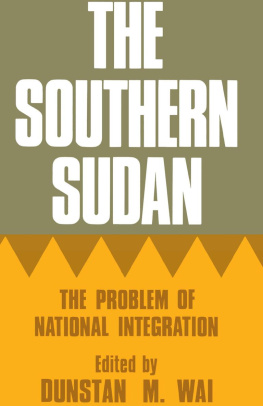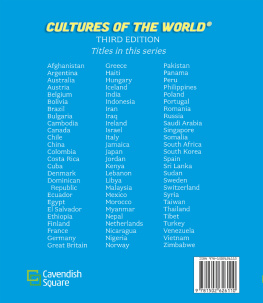First published in 1934 by George Routledge and Sons, Ltd.
This edition first published in 2017
by Routledge
2 Park Square, Milton Park, Abingdon, Oxon OX14 4RN
and by Routledge
711 Third Avenue, New York, NY 10017
Routledge is an imprint of the Taylor & Francis Group, an informa business
1934 Pierre Crabites
All rights reserved. No part of this book may be reprinted or reproduced or utilised in any form or by any electronic, mechanical, or other means, now known or hereafter invented, including photocopying and recording, or in any information storage or retrieval system, without permission in writing from the publishers.
Trademark notice: Product or corporate names may be trademarks or registered trademarks, and are used only for identification and explanation without intent to infringe.
British Library Cataloguing in Publication Data
A catalogue record for this book is available from the British Library
ISBN: 978-1-138-20168-2 (Set)
ISBN: 978-1-315-43940-2 (Set) (ebk)
ISBN: 978-1-138-21163-6 (Volume 5) (hbk)
ISBN: 978-1-138-21606-8 (Volume 5) (pbk)
ISBN: 978-1-315-44416-1 (Volume 5) (ebk)
Publishers Note
The publisher has gone to great lengths to ensure the quality of this reprint but points out that some imperfections in the original copies may be apparent.
Disclaimer
The publisher has made every effort to trace copyright holders and would welcome correspondence from those they have been unable to trace.
My thanks are due to Messrs. Edward Arnold & Co. for permission to quote certain passages from The Transit of Egypt, by Lieut.-Col. Elgood, and from England in Egypt , by Viscount Milner; to Messrs. Rivingtons in respect of similar permission regarding The Story of the Khediviate , by Edward Dicey; to Macmillan and Co., Ltd., in the cases of The Life of Gladstone , by the late Viscount Morley, The Life of Lord Kitchener , by Sir George Arthur, and Modern Egypt , by the Earl of Cromer; to Methuen & Co., Ltd., for Jacksons Osman Digna ; to Longmans, Green & Co. for The River War , by Winston Churchill; and to Seeley & Co. for The Making of Modern Egypt , by Sir Sidney Colvin.
P. C.
C HAPTER I
The Retirement from Khartum
T HE fall of Khartum left Sir Charles Wilson and his heroic little band of Englishmen in dire straits. They had dashed forward from Gubat in the vain hope of bringing relief to Gordon. They had sought, a flying squad, to annihilate distance and to wipe out time in an endeavour to save the besieged Briton standing alone amid a sea of black faces. Ninety odd miles separated them from the advance guard of the British forces. Two Nile penny steamers carried this chosen few. Sir Charles Wilson was aboard the Bordene. With him were Captain Gascoigne, of the Yorkshire Hussars, ten non-commissioned officers and men of the Royal Sussex Regiment, and one petty officer of the Royal Navy. The Talahawiyah followed with Captain Trafford, ten non-commissioned officers and men of the Royal Sussex, Lieutenant Stuart-Wortley of the Kings Royal Rifles, and one Naval petty officer. A small contingent of native officers, non-commissioned officers, and privates made up, with these twenty-six Englishmen, the entire strength of the expedition.
It was Gordons personality that had held together the forces opposed to Muhammad Ahmad. As soon as he fell, all resistance to the Mahdi crumbled. This meant that the Dervish hordes could be concentrated against the two steamers; it also implied that the twenty-six English officers and men were menaced not only by the enemy but also by the possibility of treachery from the black troops on board the boats. And added to the perils of the British position was the fact that hazardous cataracts accentuated the risk of navigation on the return journey from Khartum to the army base at Gubat.
Sir Charles Wilson was placed in a doubly difficult position. He and Gordon had been not only brother officers, but personal friends.
The commanding officer suppressed the lump in his throat. He took a final glance at Khartum and, remembering that he was an Englishman, and that duty came before sentiment, gave the fateful order to steam northward. His decision was one of those nerve-destroying resolutions which the personal equation makes even more difficult. It was a courageous admission of failure, made all the more reluctantly since Wilson knew that he had not faltered. He was, nevertheless, conscious that in retracing his steps he was opening up a new chapter in history: and he was.
The Arabs on shore caught the significance of the command to retire. They opened fire upon the steamers. Wilson recorded in his diary on 28th January, 1885:
When we got clear of the last guns it was past four oclock, so that for four hours we had been continuously engaged with the enemys batteries; luckily for us their gunners were such bad shots.
If the Arab gunners were bad shots, some of their men knew how to aim. This is evident from Wilsons story:
We all had narrow escapes. I was struck above the knee by a spent shot which got through a weak point in the turret; and my field-glass, an old friend of twenty-five years, sent out to me in America, was broken in my hand as I was resting it on the top of the turret. The Talahawiyah was struck by a solid shot, and a shell, bursting just in front of the deck-house, sent in a shower of fragments which played much havoc with the fittings, but hurt no one. Another shell burst overhead.
Darkness gave the Englishmen a respite from shot and shell; but it accentuated the perils of their position. They could not navigate by night. They had to make fast to an island in midstream and wait for dawn, conscious that the Mahdists knew approximately where they were and could concentrate their forces for attack when the steamers came to the treacherous cascades. The wounded were looked after as soon as obscurity stopped the enemy fire. There were no medical men aboard, and the two English lieutenants did all that they could to meet the emergency. Fortunately there were no very severe cases, and, as Wilson put it, the nigger is really like a bit of india-rubber. As a result, everything was ready for an early start the next morning.
Kismet willed, however, that the steamers should not get away with the lark. The float of one of their paddles got loose, and the iron rod that held it was bent; it took some time to straighten it. The result was that the clock registered seven before the boats got under way. An hour and a half later the Bordene struck a sand-bank. Half an hour was lost in getting her afloat. At eleven oclock the cataracts were reached. The native captains felt the persuasive effect of pistols at their heads and steered their craft safely through the first zone of these dangerous passages only to run the Talahawiyah into a sunken rock as soon as the entrance into open water released the pressure of cold steel. This is how Wilson described what took place







